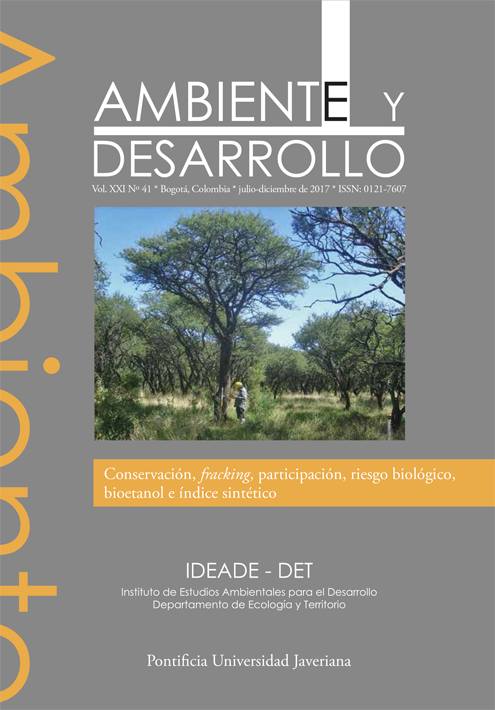Abstract
La ciudad de Quito dispone de dos estaciones de transferencia de residuos, previamente a su transporte al relleno sanitario de El Inga. En la estación de transferencia de Zámbiza laboran minadores recolectando el material reciclable de los residuos, labor que los pone directamente en contacto con los residuos de papel higiénico cargados de heces humanas que la comunidad desecha junto con los residuos, exponiéndolos a un riesgo biológico que ha sido evaluado a través de la determinación de coliformes fecales y totales en su ambiente de trabajo y la posterior aplicación del método Biogaval. Se obtuvo que los minadores superan el nivel de acción biológica para la tifoidea y paratifoidea y están muy cerca en el caso de intoxicaciones alimentarias con presencia de diarreas agudas. Con las medidas correctivas se logró disminuir el riesgo hasta niveles inferiores al inicial.
Ambiente y Desarrollo is registered under a Creative Commons Attribution 4.0 International Public License. Thus, this work may be reproduced, distributed, and publicly shared in digital format, as long as the names of the authors and Pontificia Universidad Javeriana are acknowledged. Others are allowed to quote, adapt, transform, auto-archive, republish, and create based on this material, for any purpose (even commercial ones), provided the authorship is duly acknowledged, a link to the original work is provided, and it is specified if changes have been made. Pontificia Universidad Javeriana does not hold the rights of published works and the authors are solely responsible for the contents of their works; they keep the moral, intellectual, privacy, and publicity rights.
Approving the intervention of the work (review, copy-editing, translation, layout) and the following outreach, are granted through an use license and not through an assignment of rights. This means the journal and Pontificia Universidad Javeriana cannot be held responsible for any ethical malpractice by the authors. As a consequence of the protection granted by the use license, the journal is not required to publish recantations or modify information already published, unless the errata stems from the editorial management process. Publishing contents in this journal does not generate royalties for contributors.


